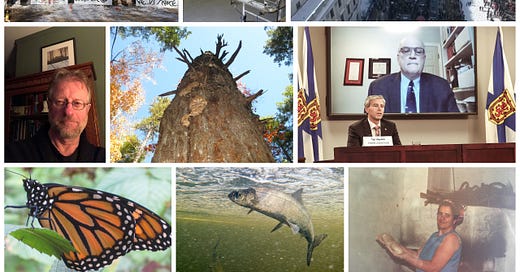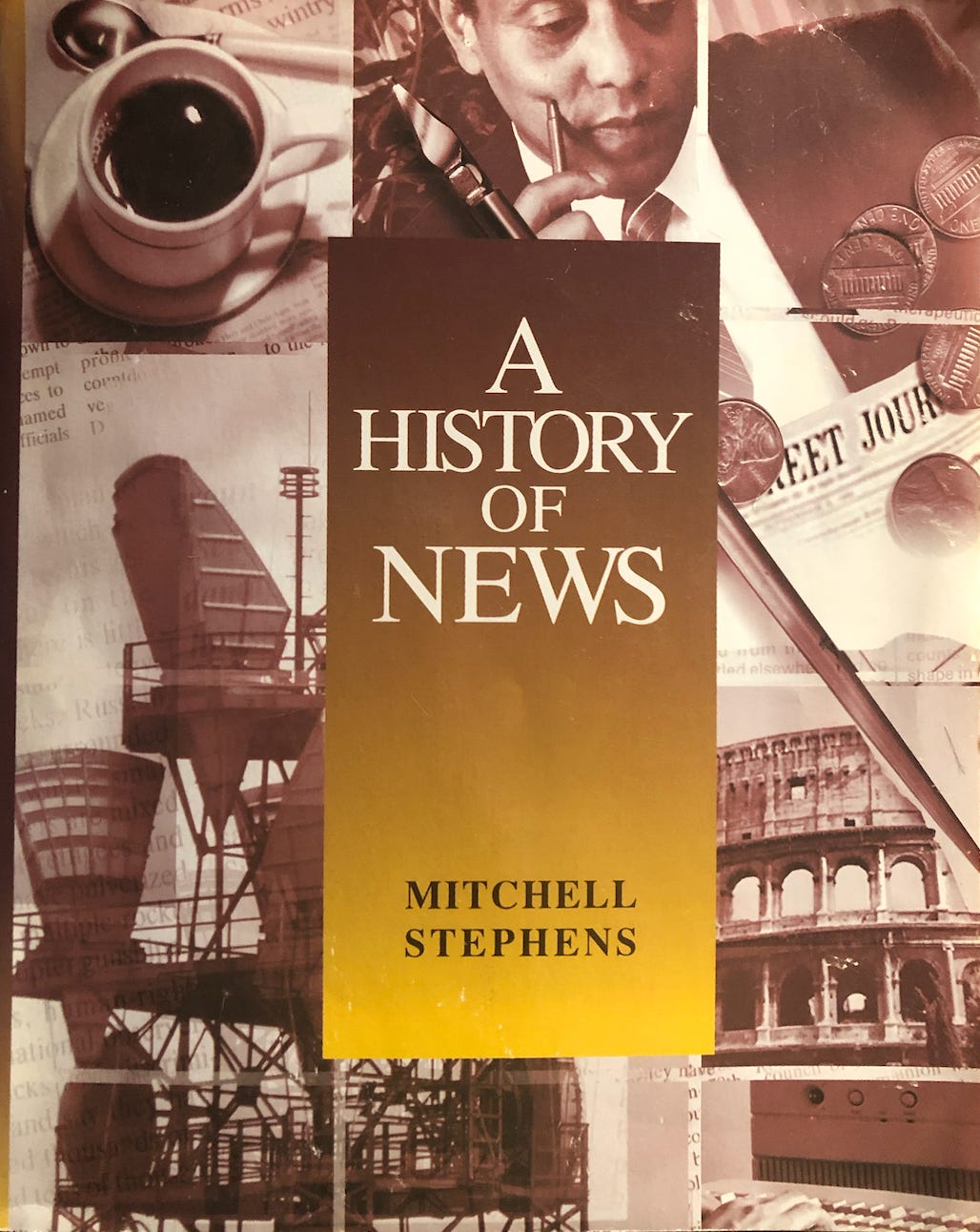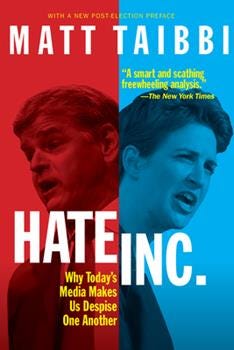“The proper emotion is wonder.” – Ralph Waldo Emerson
A year ago today, in my inaugural post for The Quaking Swamp Journal, I explained how the name of the newsletter was taken from a piece by Henry David Thoreau titled, “Walking,” written sometime before his death in May of 1862 and eventually published in The Atlantic. Thoreau wrote, “Hope and the future for me are not in lawns and cultivated fields, but in the impervious and quaking swamps.” Thoreau recognized that our salvation lies in the natural world, and for me, the idea of the swamp—a true wilderness, unencumbered, and self-willed—seemed a good metaphor for the kind of writing I hoped to offer here.
Selection of cover photos from stories published in 2022
When I look back on the variety of stories I published over the last twelve months, I am reminded of the reasons I embarked on the project in the first place. I didn’t want to be bound by the dictates of groupthink, or the constraints of mainstream narratives. To a large extent, I think I accomplished both those goals. Some of the stories that appeared here were not covered anywhere else, while others were deeper dives into stories that were. Others offered a more nuanced perspective on an issue, or touched on topics that have become verboten in today’s news milieu.
Throughout, I’ve been committed to raising legitimate questions in the public interest, even when it felt like there was a short line of reporters publicly asking them.
While sorting through some books over the holidays I came across the publication, A History of News by Mitchell Stephens. It was recommended reading for the University of King’s College journalism course History and Ethics of Journalism, taught by veteran journalist (and now good friend) Bruce Wark. The book lays out in great detail an international history of journalism, ranging from preliterate societies to the very beginnings of the digital age.
In the first edition published in 1997, Stephens provides a chronology of developments in the telling of news that ends in 1996 with two notable events. The first is that “news organizations and technology companies race to place news on the Internet,” which Stephens says, “seems to hold the promise of making vast quantities of information almost instantly available to plugged-in computer users around the world.”
The other development Stephens highlights is media concentration: “Disney purchases ABC. Time Warner purchases CNN. Westinghouse purchases CBS. Huge global media corporations seem to grow larger and larger – with worldwide television networks, their own movie studios and their own news operations.”
The book, written on the cusp of the digital revolution, was bang on about how news would now be packaged: “to conform more closely to individual interests.”
Where Stephens leaves off, author and former Rolling Stone reporter Matt Taibbi takes over. In his book, Hate Inc. – Why Today’s Media Makes Us Despise One Another, Taibbi writes that “now more than ever, journalists work for giant nihilistic corporations whose editorial decisions are skewed by a toxic mix of political and financial considerations.” Taibbi says that in this kind of environment it’s important to know how the pressures work to create what he calls “distortions” in the news.
Taibbi argues that the technology “underpinning the modern news business” works in a two-step process: first, it creates content that “reinforces” a reader’s “pre-existing opinions, and after analysis of your consumer habits, sends it to you.”
“Then it matches you to advertisers who have a product they’re trying to sell to your demographic. This is how companies like Facebook and Google make their money: telling advertisers where their likely customers are on the Web.”
The news, basically, is bait to lure you in to a pen where you can be sold sneakers or bath soaps or prostatitis cures or whatever else studies say people of your age, gender, race, class, and political bent tend to buy.
Taibbi argues that what we think of as “the news” is actually an “individualized consumer experience – anger just for you.” Reporting has become a “marketing process designed to create rhetorical addictions…and pockets of political rancor…masses of media consumers who’ve been trained to see only one direction.”
As it turns out, there is utility in keeping us divided. As people, the more separate we are, the more politically impotent we become… First, we’re taught to stay within certain bounds intellectually. Then we’re all herded into separate demographic pens, located along different patches of real estate on the spectrum of permissible thought. Once safely captured, we’re trained to consume the news the way sports fans do. We root for our team, and hate all the rest.
“We manufactured fake dissent, to prevent real dissent.”
On the first anniversary of The Quaking Swamp Journal, I want to thank you for being part of this undertaking, and assure you that it has nothing to do with selling you sneakers or bath soaps! But I hope it does have something to do with what Stephens envisions in the final chapter of his book, The Future of News, where he writes:
We can hope that journalists will wander more frequently beyond the boundaries of news itself and occasionally adopt less hurried, more searching perspectives. And there is always the hope that… the news will enlarge a mind.
Thank you for taking an interest in my writing, reading my work, commenting (publicly or privately), sharing, or taking out a paid subscription. All the ways that you participate, help reinforce my commitment to this project.
I also want to thank those of you who stepped up recently to assist with the fees associated with two Freedom of Information requests. Thankfully, those costs were covered.
Keep an eye on this space and thanks again for your support.







Excellent article Linda! I was reminded of the corporate control of the “news” when reading an article about a F.D.A. board member who tried to silence people on Twitter and who -in an interjection, apropos of nothing-was described as a former Pfizer exec. No conflict of interest there. I’m teaching a media and bias unit now and it’s hard to adequately express to my students the extent of curated news and the difficulty of finding the “truth”, whatever that is.
Linda, you are such a journalist envisioned by Stevens who 'wanders beyond boundaries' and searches deeply. Thank you.